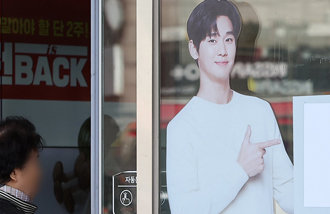Korea’s 52-hour workweek system could weigh down competitiveness
Korea’s 52-hour workweek system could weigh down competitiveness
Posted November. 04, 2024 07:50,
Updated November. 04, 2024 07:50
With countries in intense competition to gain the upper hand in the artificial intelligence (AI) and semiconductor markets, Korea has a growing demand to make an exception to the 52-hour workweek for high-wage researchers in the field. Countries such as the United States and Japan are implementing the so-called ‘White Collar Exemption’ system for high-wage professionals in related sectors, making exceptions to working hours for professionals, making it possible to secure competitiveness in the field. In contrast, Korea’s rigid 52-hour workweek system may be weighing down on the sector’s competitiveness, as some point out.
Nvidia and TSMC labs operate tirelessly because researchers can “work and rest intensively over a certain period.” In the United States, working hour regulations do not apply to workers in managerial, professional, computer, or sales positions who earn more than 684 dollars per week, or high-wage workers earning more than 107,432 dollars per year. Japan has a ‘highly skilled professional’ system. High-income earners, such as financial product developers, researchers, certified public accountants, and lawyers, earning more than 10.75 million yen per year, are excluded from working hour regulations. These countries have left opportunities open for those with high salaries and enough expertise to negotiate with the company.
Meanwhile, Korea’s labor regulations, which apply across all industries, including high-tech, are said to be the culprit behind declining productivity and technological competitiveness. “Nvidia and TSMC researchers stay up all night doing research, while it’s time for Korean researchers to head home after they’ve come up with an idea after hours of discussion,” said a Korean researcher in the semiconductor industry. According to a survey by the Korea Institute of Industrial Technology Planning and Evaluation last year, Korea's technology competitiveness in next-generation semiconductors stood at 86 points, with the gap continuing to grow against the United States at 100 points.
The semiconductor industry is witnessing a sea of change with the emergence of AI, with Nvidia taking over traditional chipmaker Intel and joining the Dow Jones Industrial Average. Against this background, however, Korea is facing serious challenges, with AI semiconductors’ competitiveness falling behind the United States and Taiwan, while Chinese players closely chase low-end semiconductors. To attain outstanding technological competitiveness and regain leadership in the semiconductor industry, Korea should actively consider easing or exempting working hour regulations, at least for high-tech industry professionals.
Headline News
- Opposition parties pass amendment to Commercial Act
- Impeachment motions against top officials dismissed
- IU's residence ranked as the nation's most expensive apartment
- K-medicine saves 300 lives in Mongolia through liver transplant skill transfer
- Prisoners in N. Korean camps suffer from torture at minus 30 degrees







